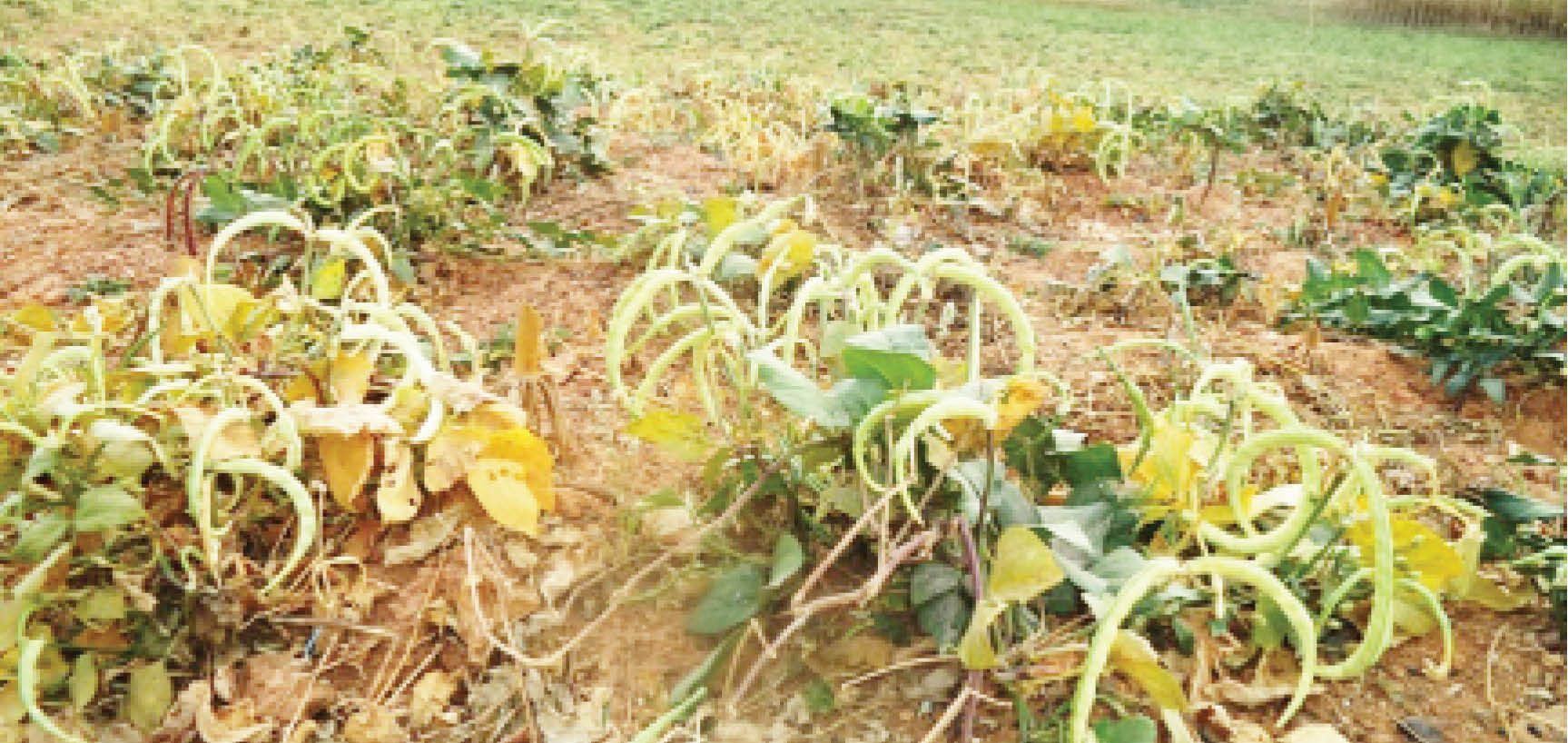Despite poor yields, beans farmers hopeful as market price surges
Beans production this year was reportedly hindered by early stoppage of rain in most parts of the growing states. In most parts of the northern states known for massive production of beans, rain seized around mid-October when the crop was about to start flowering. This situation had jerked up the price of the produce in […]

One of the beans farms affected by the early rain stopage around Malumfashi area of Katsina State
Beans production this year was reportedly hindered by early stoppage of rain in most parts of the growing states.
In most parts of the northern states known for massive production of beans, rain seized around mid-October when the crop was about to start flowering. This situation had jerked up the price of the produce in the market, even when many farmers had started harvest in some states.
But the farmers are hopeful that with the appreciable price of the commodity in the market, they would be able to recoup some of their investments with the little ones they can harvest.
Reports from Benue State, one of the growing states, show that the produce did not do well this year.
Daily Trust on Sunday learnt that a 100kg bag of beans now sells as high as N34,000 as against N23,000 the same bag was sold the same time last year.
Farmers in Katsina State said production of beans was pathetic.
Aliyu Sani Yam’mama, a beans farmer at Malumfashi Local Government Area, said that unlike last year, the situation is not favourable to beans farmers in the state this year.
“Early planters who wanted to benefit from ample rainfall in August and September suffered from it instead as heavy downpours in the said two months damaged the young plants. Those who chose to plant late were defeated by the early stoppage of rainfall in the first week of October. Only few lowland farms had the opportunity to have promising plants in the state this year,’’ Yam’mama said.
He added that last year, the crop blossomed and gave the desired yield because of the moderate rainfall pattern as it seized around November.
Musa Saleh, a beans dealer in Funtua market, said unlike rice and other produce that were imported; Nigerians largely eat locally produced beans, even when boarders were opened.
“The only guarantee for low market price is to produce in abundance. Because of how the scarcity of beans was projected this year, merchants will hoard the produce in large quantities very soon, and that will escalate the cost and demand in various markets.
“A 100kg of the produce is now sold at N32,000; and after harvest, the price might come down before it picks up again, especially during the forthcoming fasting period,’’ he said.
He enjoined peasant farmers not to be carried away by the high price of farm produce and sell all they have, as they need what would sustain them till the next farming season.
“Farmers should be warned about the lurking economic turmoil threatening the world and this country in particular. They should save what will sustain them to another farming season,” Saleh advised.
Also, Mallam Ahmed Haruna, a retired agricultural worker, said it was time government invested in the academic aspect of agriculture to bridge the deficit gap of technical-know on crop production.
“What farmers need is much more than inputs; they also need knowledge of the best practice in production and preservation of crops like beans, onions, tomatoes, potatoes, and so on.
“We are lacking professionals in the agricultural sector, especially at the grassroots level, a ground zero for every farming activity. Our teaming youths should be engaged in agricultural courses in colleges and polytechnics so that we have competent extension workers in our farms,’’ Haruna advised.
He added that with the present government’s policy on food sufficiency, coupled with the growing population in the country, agriculture would soon be the last resort in the provision of job opportunities. “We can sufficiently harness the opportunities therein when we have enough knowledgeable extension workers guiding our farmers at the grassroots.’’
